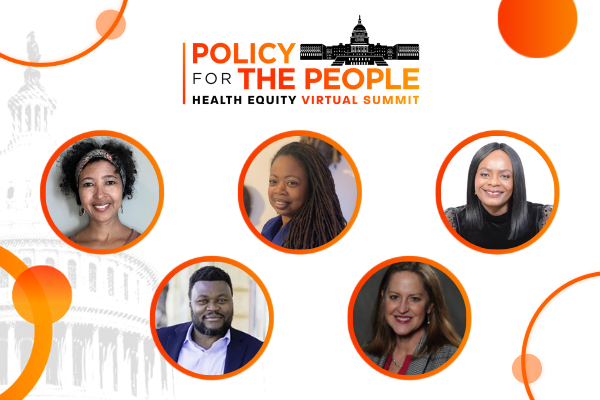Black Americans are among the most politically influential voting blocks in the United States. Engaging at the local and federal levels has helped our communities attain historical advancements in education and economic access, which are inextricably linked to health outcomes. Despite this progress, Black communities are still impacted by social and political structures that perpetuate disparate outcomes in their everyday lives.
Historical and contemporary injustices and medical mistrust directly contribute to health disparities among Black communities. These disparities are presented in the rate at which Black communities are impacted by adverse health and suffer from preventable harm due to differences in access to healthcare and the quality of care received. Black Americans experience higher rates of heart disease, diabetes, cancer, maternal mortality, infant mortality, and other health issues. Social factors directly contribute to increased risk factors and the ability to attain health insurance coverage in Black communities.
Policy reform and social change movements are pathways to systematically deconstruct barriers to health care and improve the quality of care our communities receive. Health equity is an issue of persistent importance, as gaps in access to care can worsen community health outcomes in the face of a national health emergency such as the COVID-19 pandemic.
Join us on Thursday, May 12, 2022, from 11 a.m. to 3 p.m. EST as we discuss these critical issues, share milestones of progress, and establish a framework for improved health in our community at the Policy for the People Health Equity Summit.
This two-part event series seeks to bring the most pressing issues in policy to the access of all Americans and provide a forum for thought leaders to engage in policy discourse and align efforts and strategies to enact lasting change. Congressional Black Caucus members, clinical professionals, and thought leaders are working together to combat these issues and create health systems where Black communities can achieve health equity.
During the summit’s first session, a coalition of clinical practitioners and leaders in academia will discuss the issue of maternal mortality impacting Black communities in the United States and Abroad. This session will address the cultural and societal factors contributing to poor maternal health outcomes in low-resource countries and the developed world. During the second session, cardiologists and other leaders in the health equity movement will discuss their current efforts to address these gaps in care. Panelists will also provide practical guidance for community members to monitor and identify risk factors that make Black communities more susceptible to heart disease.


About Desiree
Desiree Solomon is the Research Program Analyst at the Congressional Black Caucus Foundation’s Center for Policy Analysis and Research (CPAR) and oversees research and policy programming across CPAR’s priority areas in Health Equity, Voter Empowerment, Tech equity, and supports the work of the National Racial Equity Initiative. With a background in foreign affairs and human security Desiree aims to identify issues impacting the global Black community, highlight areas of solidarity, and craft opportunities for policy dialogue and increased awareness for the CBC constituency.

